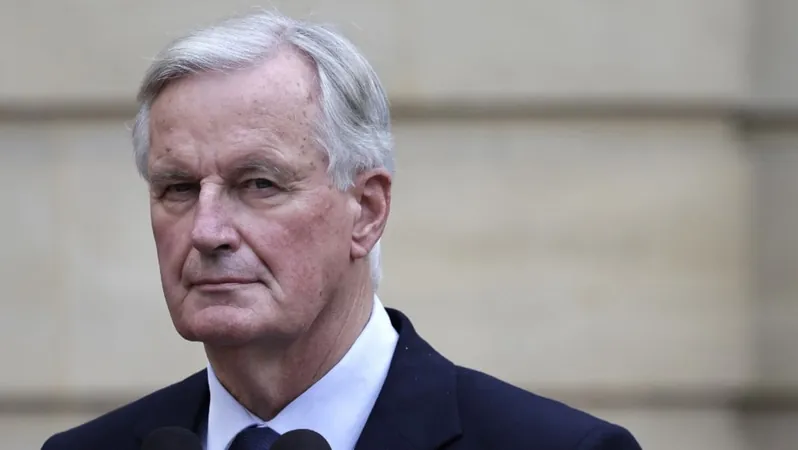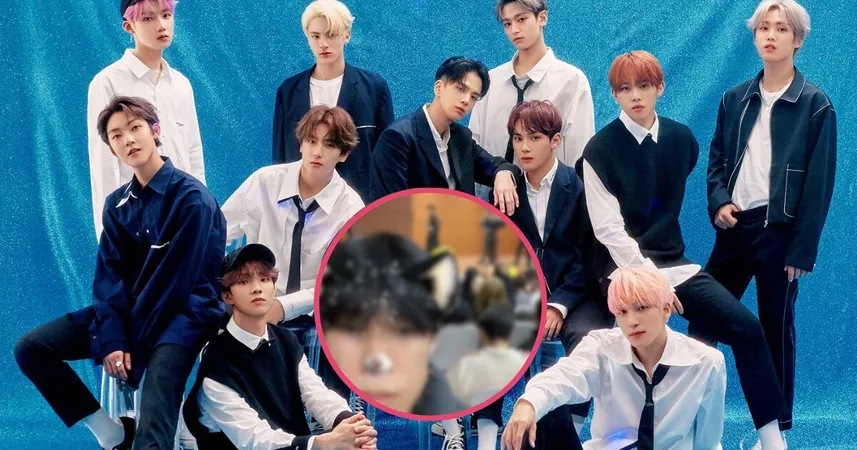
French Government Faces Immediate Challenges as Opposition Gears Up for Battle
2024-09-22
French Government Faces Immediate Challenges as Opposition Gears Up for Battle
PARIS: The new government of French Prime Minister Michel Barnier finds itself in a precarious position from the very start. Following President Emmanuel Macron's snap general election, which concluded over an 11-week wait for a functioning cabinet, the administration is already facing threats of no-confidence motions as opposition factions actively plan their next moves.
Barnier's cabinet, unveiled late on Saturday, reflects a definitive shift to the right, raising eyebrows among various political camps. While the leftist alliance, the New Popular Front (NFP), secured the highest number of parliamentary seats, it fell short of achieving a governing majority. Meanwhile, the far-right National Rally, led by Marine Le Pen, emerged as the single most prominent party in the Assembly, adding further complexity to Barnier's early governance challenges.
Political tensions escalated as far-left leader Jean-Luc Mélenchon criticized the new cabinet as a "government of the general election losers," advocating for swift action to "get rid" of it. Protests erupted across French cities in response to what many perceive as a dismissal of the electoral will demonstrated in July.
With Macron's vision of fostering a neutral stance from the far right swiftly dashed, National Rally leader Jordan Bardella wasted no time in denouncing the new administration, declaring it to have "no future whatsoever." Despite their substantial seat losses, Macron’s party, Renaissance, secured 12 of the 39 ministerial positions, indicating a robust holding on power amidst rising dissatisfaction.
Former President François Hollande echoed the sentiments of many critics, branding the cabinet a reiteration of past administrations but with an increased right-wing presence that might lead to "painful measures" for everyday citizens. The prospect of a no-confidence motion becomes more tangible, though to succeed, it would require a rare coalition between far-right and leftist factions—an unlikely alliance given their history of opposition to one another.
As Barnier prepares to face the parliament on October 1 with a key policy speech, a pressing concern looms—the submission of a controversial budget plan aimed at stabilizing France's financial state, which he has dubbed "very serious." Compounding the situation, France is under scrutiny for violating European Union budgetary regulations.
Antoine Armand, the newly appointed 33-year-old finance minister, hinted at potential "exceptional and targeted" tax increases and cuts in public spending, a move that could provoke widespread unrest among the French populace already strained by economic uncertainties.
Additional significant appointments include Foreign Minister Jean-Noël Barrot and Interior Minister Bruno Retailleau, whose right-wing stance may create friction within even their own party ranks. Barnier's commitment to addressing the nation in a televised address signals a recognition of the daunting challenges ahead as he seeks to navigate a political landscape fraught with tension and opposition.
With the cabinet now in place, the question remains: can Barnier muster the support needed to govern effectively, or will the push for a no-confidence motion threaten to topple his administration before it even gets off the ground? The political climate in France is heating up, and all eyes will be on how this newly minted government responds to immediate scrutiny and challenges. Buckle up – the battle for France’s political future has just begun!





 Brasil (PT)
Brasil (PT)
 Canada (EN)
Canada (EN)
 Chile (ES)
Chile (ES)
 España (ES)
España (ES)
 France (FR)
France (FR)
 Hong Kong (EN)
Hong Kong (EN)
 Italia (IT)
Italia (IT)
 日本 (JA)
日本 (JA)
 Magyarország (HU)
Magyarország (HU)
 Norge (NO)
Norge (NO)
 Polska (PL)
Polska (PL)
 Schweiz (DE)
Schweiz (DE)
 Singapore (EN)
Singapore (EN)
 Sverige (SV)
Sverige (SV)
 Suomi (FI)
Suomi (FI)
 Türkiye (TR)
Türkiye (TR)